

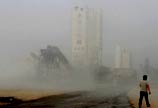 Beijing's neighbor Tianjin released its air pollutant analysis at the weekend, in which dust pollution was blamed as main cause of smog.
Beijing's neighbor Tianjin released its air pollutant analysis at the weekend, in which dust pollution was blamed as main cause of smog.
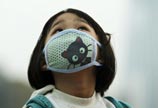 China has issued a "behavioural standards" guide to combat pollution and reduce environmental damage, urging people to do everything from walking and riding bicycles to buying goods with less packaging.
China has issued a "behavioural standards" guide to combat pollution and reduce environmental damage, urging people to do everything from walking and riding bicycles to buying goods with less packaging.
 Beijing has reached its emission reduction goals for the first half of the year and levels of major pollutants are continuing to decline.
Beijing has reached its emission reduction goals for the first half of the year and levels of major pollutants are continuing to decline.
Fifty-six mines have been shut down in north China's Hebei Province, which holds the country's smoggiest cities.
Beijing will ban the consumption of high-polluting fuels in downtown areas by 2020, the municipal environmental protection authority said.
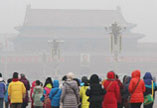 Beijing will issue a new urban planning strategy by the end of this year that will for the first time contain a plan to preserve large and green "air corridors".
Beijing will issue a new urban planning strategy by the end of this year that will for the first time contain a plan to preserve large and green "air corridors".
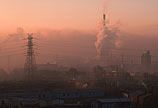 Beijing will enforce the required use of low-sulfur coal from Aug 1 to tackle the air pollution that frequently clogs the skies of the cities.
Beijing will enforce the required use of low-sulfur coal from Aug 1 to tackle the air pollution that frequently clogs the skies of the cities.
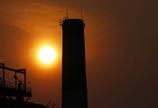 Beijing plans to invest 47.858 billion yuan ($7.662 billion) to combat air pollution in the next five years, with a special focus on coal-fired pollution, vehicle emissions, industrial pollution and dust.
Beijing plans to invest 47.858 billion yuan ($7.662 billion) to combat air pollution in the next five years, with a special focus on coal-fired pollution, vehicle emissions, industrial pollution and dust.
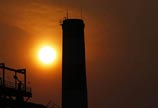 The Beijing Environment Protection Bureau orders a Sino-US joint venture in the Chinese capital to pay the maximum fine for polluting the air.
The Beijing Environment Protection Bureau orders a Sino-US joint venture in the Chinese capital to pay the maximum fine for polluting the air.
China's Ministry of Environment on Friday issued four standards to curb industrial waste and air pollutant emissions.
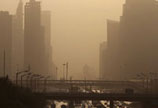 A special court for environmental cases was opened on Friday in East China's Fujian province. It is the country's first such specialized judiciary organ.
A special court for environmental cases was opened on Friday in East China's Fujian province. It is the country's first such specialized judiciary organ.
A total of 70.6 percent of the 74 Chinese cities monitored for air quality in April met the national air quality standards, the Ministry of Environmental Protection said on Friday.